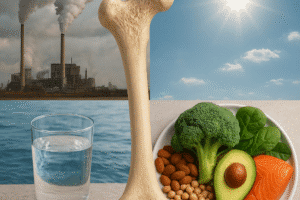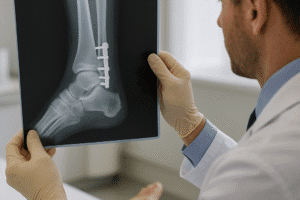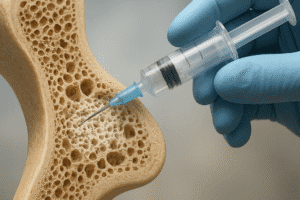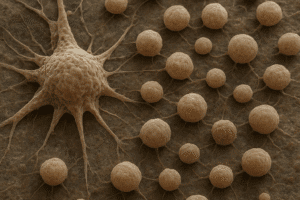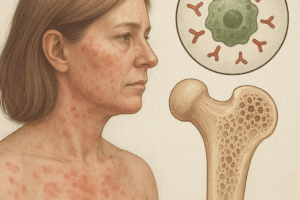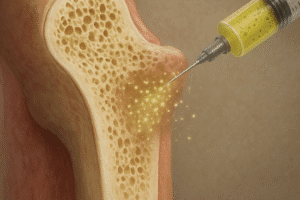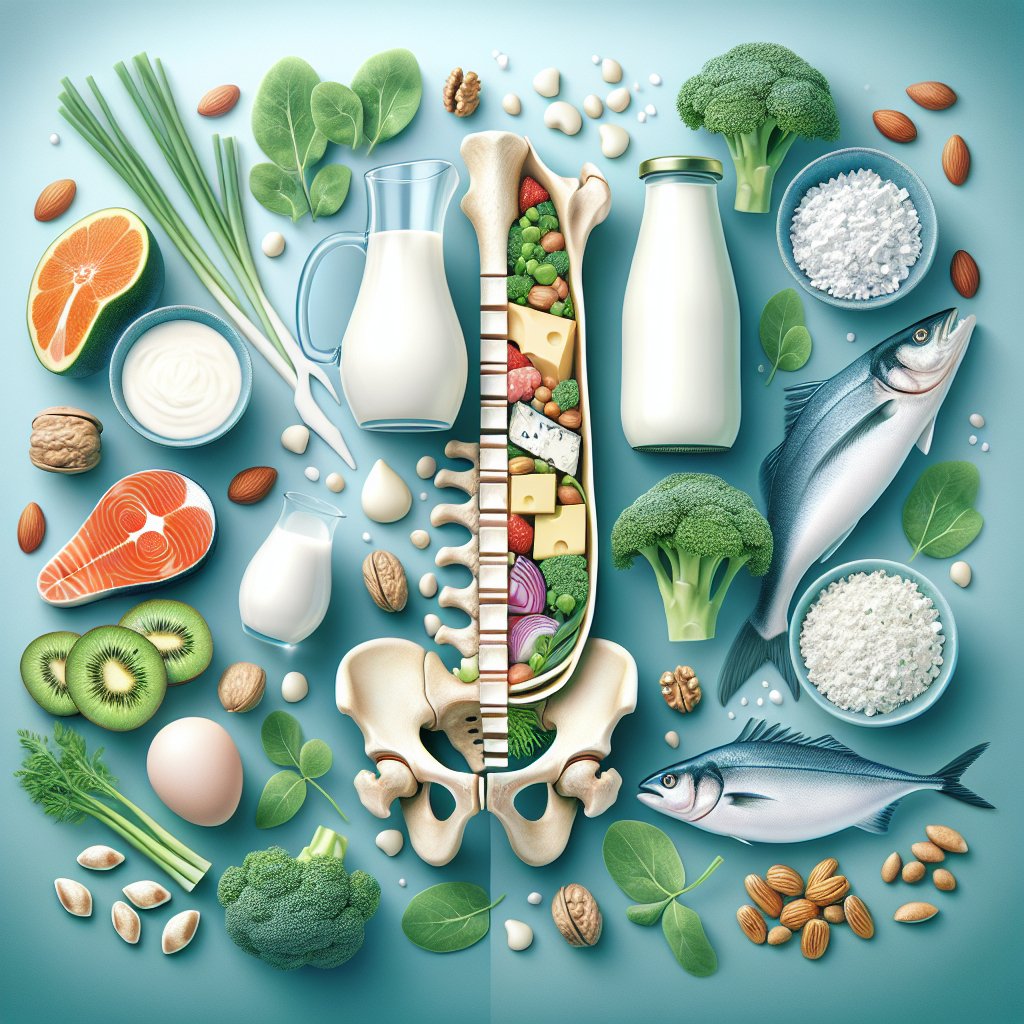Diet plays a crucial role in determining bone strength and growth, influencing not only the development of bones during childhood and adolescence but also their maintenance and health throughout adulthood. Understanding the relationship between nutrition and bone health is essential for preventing conditions such as osteoporosis and fractures later in life. This article will explore the key nutrients that contribute to bone strength, the impact of dietary choices on bone growth, and practical recommendations for maintaining optimal bone health through diet.
The Role of Key Nutrients in Bone Health
Bone health is significantly influenced by several key nutrients, each playing a unique role in the development and maintenance of bone density and strength. The most important nutrients for bone health include calcium, vitamin D, magnesium, phosphorus, and protein. Each of these nutrients contributes to the structural integrity of bones and their ability to withstand stress.
Calcium: The Building Block of Bones
Calcium is perhaps the most well-known nutrient associated with bone health. It is a primary component of bone tissue, making up about 99% of the body’s calcium stores. Adequate calcium intake is essential during childhood and adolescence when bones are growing rapidly. The recommended dietary allowance (RDA) for calcium varies by age and gender, but generally, adolescents require about 1,300 mg per day, while adults need around 1,000 mg, increasing to 1,200 mg for women over 50 and men over 70.
Good dietary sources of calcium include:
- Dairy products such as milk, cheese, and yogurt
- Leafy green vegetables like kale and broccoli
- Fortified foods, including certain cereals and plant-based milk alternatives
- Fish with edible bones, such as sardines and salmon
Vitamin D: The Calcium Absorber
Vitamin D is essential for the absorption of calcium in the intestines. Without sufficient vitamin D, the body cannot effectively utilize calcium, leading to weakened bones. The body can produce vitamin D through exposure to sunlight, but dietary sources are also important, especially in regions with limited sunlight.
The RDA for vitamin D is 600 IU for adults up to age 70 and 800 IU for those over 70. Foods rich in vitamin D include:
- Fatty fish such as salmon, mackerel, and sardines
- Fortified foods like milk, orange juice, and cereals
- Egg yolks
Magnesium and Phosphorus: Supporting Bone Structure
Magnesium and phosphorus are also vital for bone health. Magnesium helps convert vitamin D into its active form, which is necessary for calcium absorption. It also plays a role in bone formation and maintenance. The RDA for magnesium is about 400-420 mg for men and 310-320 mg for women.
Phosphorus works alongside calcium to form hydroxyapatite, the mineral complex that gives bones their strength. The RDA for phosphorus is 700 mg for adults. Foods high in magnesium and phosphorus include:
- Nuts and seeds
- Whole grains
- Legumes
- Meat and dairy products
Protein: The Foundation of Bone Matrix
Protein is another critical nutrient for bone health. It provides the necessary amino acids for the synthesis of collagen, a protein that forms the bone matrix. Adequate protein intake is essential for maintaining bone density, especially in older adults. The RDA for protein is about 46 grams per day for women and 56 grams for men, but many experts suggest higher intakes for optimal bone health.
Sources of protein include:
- Meat, poultry, and fish
- Eggs
- Dairy products
- Legumes and beans
- Nuts and seeds
The Impact of Dietary Choices on Bone Growth
Dietary choices made during childhood and adolescence can have lasting effects on bone health. The foundation for strong bones is laid during these formative years, making it crucial to establish healthy eating habits early on. Poor dietary choices, such as excessive consumption of processed foods, sugary beverages, and low nutrient intake, can hinder bone growth and increase the risk of osteoporosis later in life.
The Importance of a Balanced Diet
A balanced diet that includes a variety of foods from all food groups is essential for optimal bone health. This includes not only the key nutrients mentioned earlier but also a range of vitamins and minerals that support overall health. A diet rich in fruits and vegetables provides antioxidants and other compounds that can help reduce inflammation and promote bone health.
Some dietary patterns that have been associated with better bone health include:
- The Mediterranean diet, which emphasizes fruits, vegetables, whole grains, fish, and healthy fats
- The DASH diet (Dietary Approaches to Stop Hypertension), which focuses on whole foods and low sodium
Foods to Limit for Better Bone Health
While certain foods can promote bone health, others can have a negative impact. High consumption of caffeine, alcohol, and excessive sodium can lead to decreased calcium absorption and increased bone loss. It is advisable to limit the intake of:
- Caffeinated beverages, such as coffee and soda
- Alcohol, particularly in excess
- Processed foods high in sodium
The Role of Supplements
In some cases, dietary supplements may be necessary to ensure adequate intake of key nutrients for bone health. This is particularly true for individuals who have dietary restrictions, such as vegans or those with lactose intolerance, who may struggle to meet their calcium and vitamin D needs through food alone. However, it is essential to consult with a healthcare professional before starting any supplementation, as excessive intake of certain nutrients can lead to adverse effects.
Practical Recommendations for Maintaining Bone Health
To maintain optimal bone health throughout life, it is essential to adopt a holistic approach that includes a balanced diet, regular physical activity, and healthy lifestyle choices. Here are some practical recommendations:
1. Prioritize Nutrient-Rich Foods
Focus on incorporating a variety of nutrient-rich foods into your diet. Aim for a balanced intake of calcium, vitamin D, magnesium, phosphorus, and protein. Include plenty of fruits and vegetables to provide additional vitamins and minerals that support bone health.
2. Engage in Weight-Bearing Exercises
Regular physical activity, particularly weight-bearing exercises such as walking, running, dancing, and resistance training, is crucial for building and maintaining bone density. Aim for at least 150 minutes of moderate-intensity exercise each week, along with strength training exercises at least twice a week.
3. Limit Unhealthy Choices
Reduce the intake of foods and beverages that can negatively impact bone health, such as those high in caffeine, alcohol, and sodium. Instead, opt for healthier alternatives that provide essential nutrients.
4. Monitor Bone Health
Regular check-ups with a healthcare provider can help monitor bone health, especially for individuals at higher risk of osteoporosis. Bone density tests can provide valuable information about bone strength and help guide dietary and lifestyle changes.
5. Educate Yourself and Others
Understanding the importance of diet in bone health is crucial for making informed choices. Educate yourself and your family about the nutrients necessary for strong bones and the dietary patterns that support overall health.
Conclusion
Diet significantly influences bone strength and growth, with key nutrients playing vital roles in the development and maintenance of healthy bones. By prioritizing a balanced diet rich in calcium, vitamin D, magnesium, phosphorus, and protein, along with engaging in regular physical activity, individuals can promote optimal bone health throughout their lives. Making informed dietary choices and adopting a healthy lifestyle can help prevent bone-related conditions and ensure a strong foundation for future generations.
